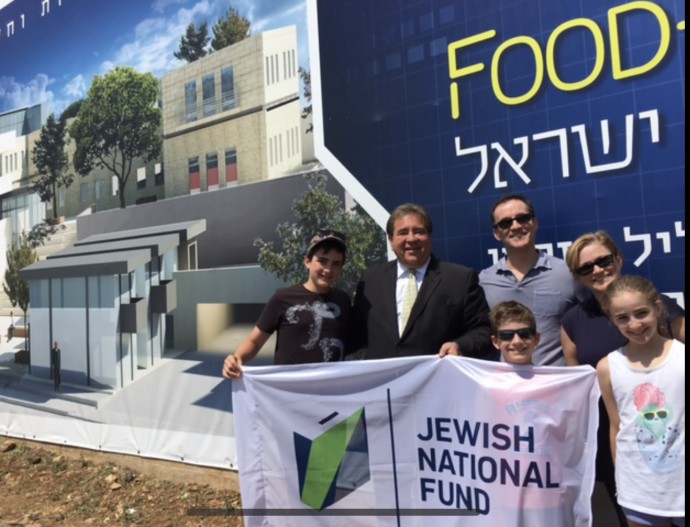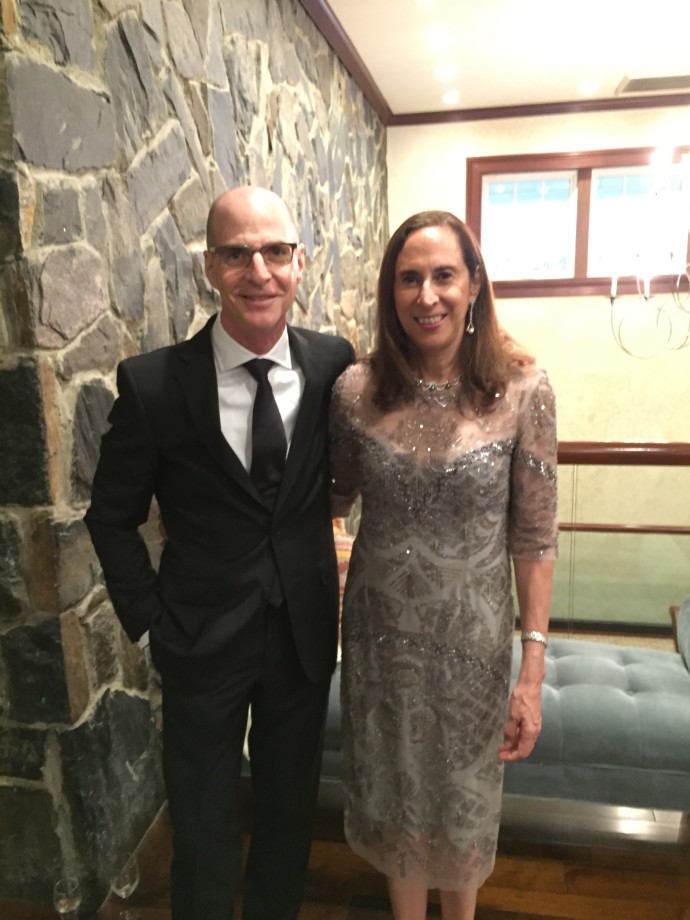Israel’s northern Galilee has become the new go-to destination for food-tech start-ups thanks to organizations like the Margalit Startup City Galil and Jewish National Fund-USA, with the latter seeking to attract 300,000 new residents to the region
Israel, the start-up capital of the world, is turning to its northernmost region to help solve one of the most pressing questions facing humanity: How can the world feed 9.7 billion people by 2050? With the support of Jewish National Fund-USA, the Margalit Startup City Galil, located in Israel’s beautiful Kiryat Shmona, is bringing entrepreneurs and global food tech experts together to help address global hunger and the other macro-challenges facing our planet.
The new food-tech hub focuses on helping emerging small businesses come together to find resources such as capital financing and mentorship in the start-up world. The work being done in the center has already allowed many businesses to grow exponentially and has created significant “food for thought” for other start-ups in Tel Aviv who are considering relocating to Israel’s North – a key goal of Jewish National Fund-USA’s Go North strategy.
Avi Shalom, CEO of plant-based meat company Planteam, says the value-added from the food-tech hub is in the convenience and expertise: “We can grow [our business] quicker in the food-tech hub because we have all the high-level resources that we need in one place. From legal to business development and marketing – everything here will enable us to hire more people,which in turn allows us to grow the local economy!”
The hope is that the growth of food-tech start-ups in the area will bring more jobs, factories, finance, and development, creating a new center that makes the Greater Kiryat Shmona region the food-tech and culinary capital of Israel, something especially meaningful for a country built on the spirit of the early pioneers. Jewish National Fund-USA’s support of the food-tech hub complements the organization’s growing portfolio of projects which make up their vision for changing the narrative in the Greater Kiryat Shmona region. Initiatives such as the Galilee Culinary Institute by JNF will revolutionize how the culinary arts are taught while attracting thousands from around the world.
As start-ups find their footing with the help of resources inside the food-tech hub, they are also laying down roots in the area. “There are huge benefits of the food-tech hub, and as a result, we hope to build our first plant in the Galilee,” says Shalom. With innovative, promising companies like Planteam locating to the region and planning for local growth, the area is soon to be a flourishing ecosystem of innovation.


And Jewish National Fund-USA is ensuring that families moving to the North will have access to housing through its Housing Development Fund. Already, 1,330 housing lots have been financed across the country, with many of those located in the North.
Through the generosity of the Greenbaum (New York, NY) and Horwitz-Zusman (Atlanta, GA) families, Jewish National Fund-USA’s vision for the North has continued to flourish through their philanthropic support of the food-tech hub.
“By 2050, we will need to feed a global population of 9.7 billion people, which means food production will have to increase by upward of 60% based on existing levels,” said Jewish National Fund-USA Partner (Donor), David Greenbaum. “Given Israel’s track record of solving global problems in the fields of cybersecurity, agriculture, IT, and water, it’s unsurprising that the world looks to Israel again to solve the significant challenge of food security.”David’s wife and Jewish National Fund-USA Partner, Laureine, was quick to add that the food-tech hub would also have a net-positive effect on the local region.
“This project is so important for local communities in the Galilee,” said Laureine Greenbaum. “Whenever we back a specific project, we want to know that it aligns with our overall strategy for a region. Through this project, we’re solving global challenges while creating highly skilled employment opportunities in Israel’s North. This means that job seekers in Tel Aviv can look beyond Israel’s center and see that there are real opportunities for them to build a career and establish a family in the Galilee.”
Equally inspired by the potential of the new food-tech hub is Jewish National Fund-USA Partner, Michael Zusman. “Through our family’s philanthropic investment in this project, we are going to see some incredible outcomes that we believe will change the future of food, and ultimately what’s on our dinner plate. Yet we are also creating jobs and boosting the local economy,” said Zusman. “What’s unique about our food-tech hub is that it provides a full suite of support for budding entrepreneurs. It’s not enough to have a great idea. You need to have great mentors, access to the best talent, and opportunities to pursue the financing you require to succeed. The food-tech hub provides all of that and more. When young tech graduates think about where they want to work, the Galilee will be at the top of their list. This is what happens when philanthropy and business come together to help change the world.”


Sharing Zusman’s belief that Jewish National Fund-USA’s food-tech hub will bring with it the high-energy start-up culture of Tel Aviv and Haifa to the North is Yinon Shir, CEO of Blue Huna, an agriculture-tech start-up rethinking single-use plastics. After speaking with Margalit Startup City Founder Erel Margalit, he was inspired to join the food-tech hub. “They said to us, ‘We are going to take everything that’s going on in central Israel and bring it up to the North,’ and I believe in that. We really believe in that vision, and we feel that they believe in our vision.”
The community of small businesses curated through the food-tech hub represents a collection of visionaries who truly want to create global change, and their companies are channeling the full power of technology and incorporating aspects of Israel’s northern region into nourishing the planet.
Yinon reports that Blue Huna is using local farmers in the North as a procurement source for raw materials: “The market that we’re now turning to as a start-up company is local farmer unions or local interest holders because we’re taking agricultural waste from the wheat crop and grain crop industry, and we’re turning it around through a mass manufacturing of disposable plastic.”


Making use of the region’s existing economy and helping local farmers is another key aspect of the food-tech hub and Jewish National Fund-USA’s strategic vision to attract 300,000 new residents to the region. This is in addition to the organization’s existing philanthropic investments that are helping Israel create a greener planet. However, there’s more to this story.
The pandemic highlighted the issue of food insecurity across Israel and the world, and some start-ups working in the food-tech hub hope to tackle the problem head-on.
Avi of Planteam says his product will work to create a safe, dependable food ecosystem in Israel and beyond. “Regarding food security, in Israel we have almost one million families that suffer from malnutrition because they don’t have enough money to afford meat or chicken. For 30 cents, our product gives you a portion of protein equivalent to a full meal. You can actually feed kids with 30 cents per meal,” says Avi.
As more start-ups like Planteam and Blue Huna call the Galilee home, Jewish National Fund-USA will continue to philanthropically invest in Israel’s North as the organization builds medical centers, housing development sites, parks, playgrounds, fire stations, and other infrastructure to ensure newly arrived residents can experience a similarly high quality of life to that which they found in the country’s center. And while there are still many environmental and food-security challenges to solve, thanks to JNF-USA and families like the Greenbaums and Horwitz-Zusmans, the future has never looked so bright.
To support Jewish National Fund-USA’s strategic vision for Israel’s north, visit jnf.org/donate or contact Lee Lebovich at llebovic@jnf.org or Reagan Weil at rweil@jnf.org.
This article was written in cooperation with Jewish National Fund-USA.
